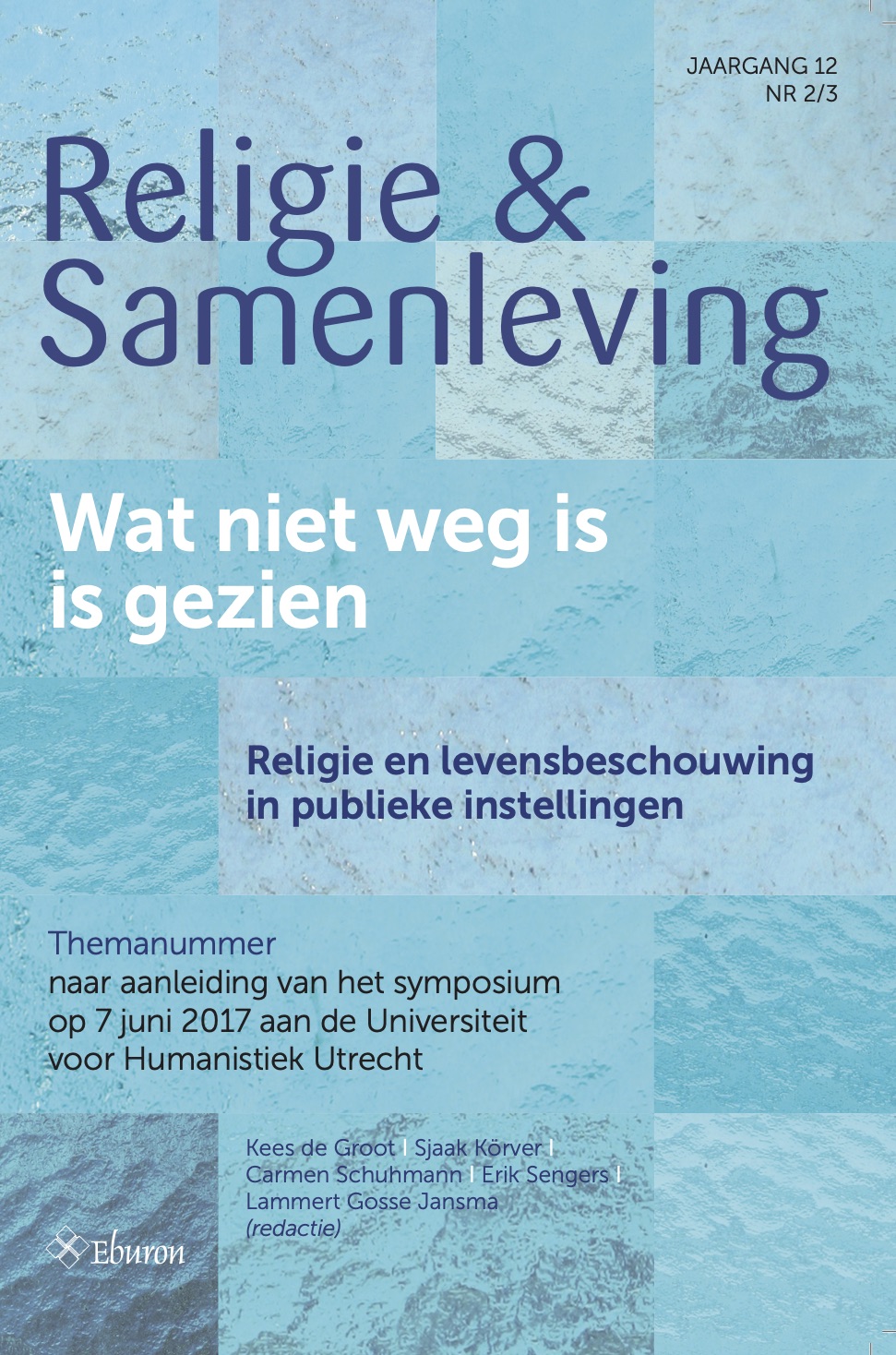Ethiek in de islamitische geestelijke verzorging
DOI:
https://doi.org/10.54195/RS.12118Samenvatting
Though a relative newcomer in the Netherlands Islamic spiritual care seems to be well integrated, institutionalised and emancipated. This new phase of development means also new challenges for the professional counselors. One of these challenges is establishing a theory for Islamic ethics in order to apply to actual ethical dilemmas in the context in which these professionals are working: detention, health care and the army. Ethics in Islam is often confused with fiqh, i.e. rulings derived from Islamic law. The law, however, of whatever nature it may be, is not ethics and does not offer a solution to ethical dilemmas. The author proposes, inspired by among others Islamic sources, a definition of Islamic ethics. From a reconstruction of an actual case of Islamic spiritual care he discusses how Islamic ethics can be put into practice.




